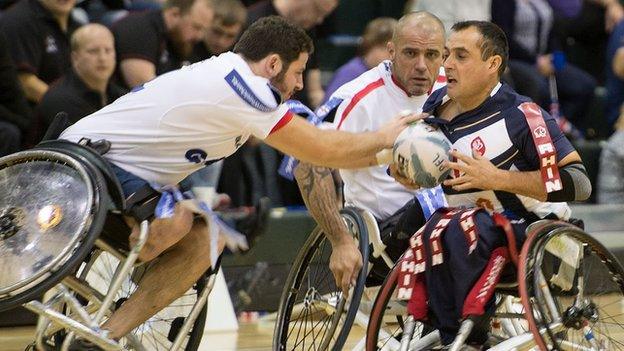Rugby League Wheelchair World Cup: James Simpson eyes glory with England
- Published
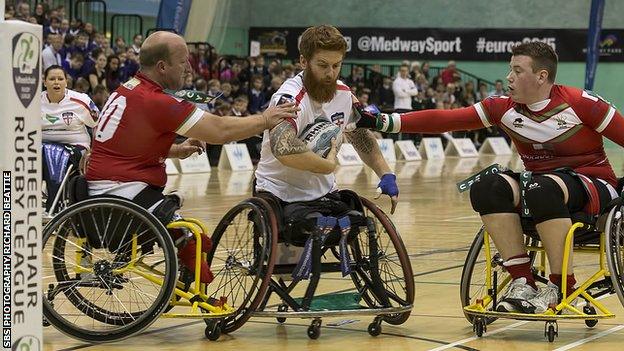
James Simpson, here in action against Wales, was a lance corporal in the 1st Battalion Yorkshire Regiment
When James Simpson had his legs blown off during an Army patrol in Afghanistan eight years ago, he refused to let the life-changing injury break his spirit.
Now he's one of the stars of the England wheelchair rugby league side, determined to lift the sport's World Cup that kicks off in France this week., external
And he says the sport is unique, bringing together those who, like him, have undergone amputation after injury or illness but also able-bodied athletes all competing together in the high-speed, big-collision world of wheelchair rugby league.
"It's a disability sport but it's an all-inclusive sport. We welcome people who really just enjoy rugby league - you don't have to be disabled," Simpson tells 5 live Rugby League.
"The game started with people playing because it was a disability sport. But in the five years I've been playing, the sport has evolved to more rugby league fans playing.
"Our England captain Jack Brown is able-bodied, his brother Harry also plays and has had his legs amputated because of meningitis. It's the only sport they can play together.
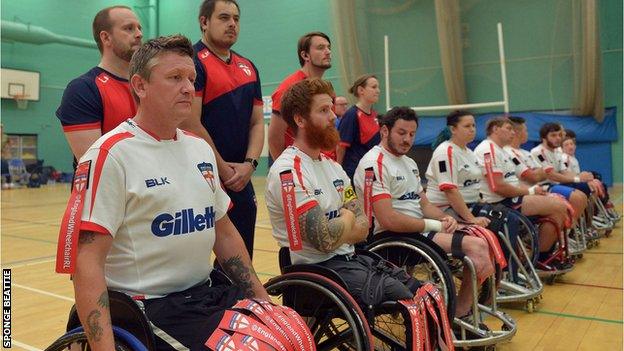
England begin their World Cup campaign against hosts and holders France on Thursday, 20 July
"We have people who run around during the week playing rugby league and then join us at the weekend. There's no gender barrier, no age barrier."
Simpson, 31, a rugby league fan who had not played the sport competitively before, discovered it after he was forced to leave the Army as a result of his injuries. He was a lance corporal in the 1st Battalion Yorkshire Regiment when he was badly injured on patrol.
"I was in Afghanistan in 2009 and on a normal patrol and I triggered an improvised explosive device that was buried in the ground," he said.
"It detonated underneath me and took both my legs off above the knee, instantaneously.
"I was lucky to be alive. The guys around me were amazing.
"I was evacuated back to the main hospital in Afghanistan and then back to the UK. From there I had two or three years' rehabilitation to get used to my prosthetics and get walking again.
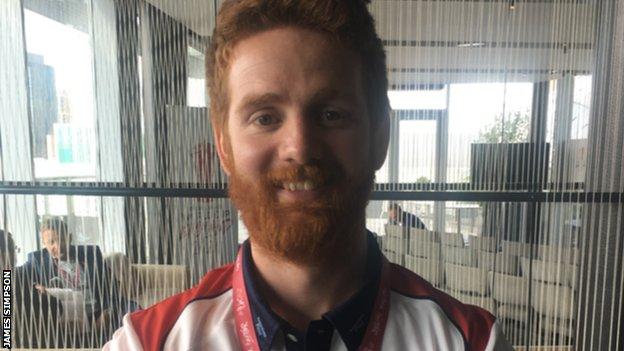
James plays for his hometown Leeds Rhinos wheelchair team
"I didn't really struggle mentally. I guess it's just my attitude or the way I've been raised. I treated it as life-changing not life-ending.
"I treated it just as another hurdle to get over. So once I'd overcome it and I was walking again I just carried on with my life like I did before but a bit different.
"It's really weird to explain but you do get put in those make-or-break situations and you've just got to make it."
After returning to his home city of Leeds, he hooked up with the Leeds Rhinos wheelchair team for a couple of training sessions, and was soon a regular in the side.
A full-back, he has now made 12 appearances for England and is looking forward to representing his country at the World Cup after he was confirmed in the 12-man squad last week, external.
And he admits that the sport can be brutal at times, with some bone-crunching tackles when wheelchairs collide at high speed. "It's as close to the running game as we can make it. The tackle is pulling tags off your opponent's shoulders." he explains.
"But there's no rule to say how hard you can go in to make that tackle, so you tend to go in as hard as you can and essentially try to flip them out on to the floor.
"If you do get flipped and you hit the ground the wrong way it can knock the wind out of you."
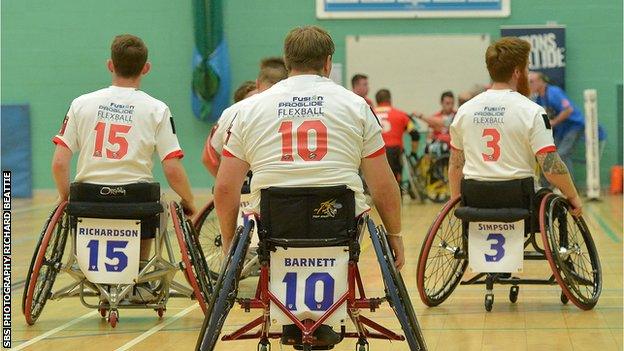
England beat world champions France 28-24 to win the European title two years ago
England's World Cup campaign begins on Thursday, 20 July in Toulouse against hosts and holders France. Other nations competing include Australia, Scotland, Wales, Italy and Spain. The final will be in Perpignan on 28 July.
"France won the World Cup four years ago, but we beat them in the European Championship two years ago, so we're expected to perform at that top level," says Simpson.
"There's quite a bit of pressure on us to win that trophy, but we're relishing it. We're ready to bring that trophy home."
But the sport is also gearing up for what it hopes will be a huge boost to its profile when the Wheelchair World Cup tournament will run alongside the men's and women's Rugby League World Cup to be hosted in England in 2021.
"I think that's going to be huge," says Simpson.
"It's going to be an amazing opportunity, it's really going to push it out there. Over the next four years there is going to be such a push in creating new clubs, especially associated to Super League clubs.
"They've only been playing the sport for three years in Australia, yet already every NRL team has a wheelchair side. So far, only three Super League teams - Hull, St Helens and Leeds - have sides. We do have Championship sides too, such as Keighley and Rochdale.
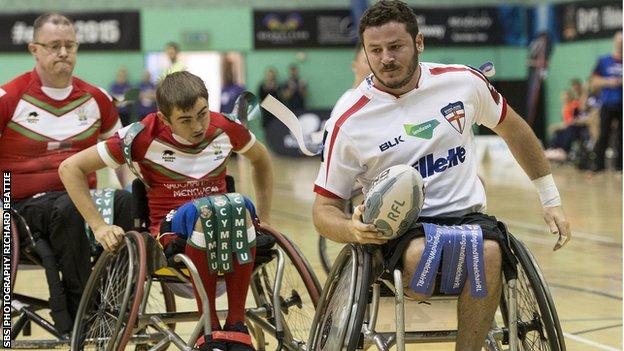
England will host the wheelchair rugby league World Cup alongside the able-bodied tournament in 2021
"But by 2021 everyone is going to want to get on board, and by the time that World Cup happens we're going to have a whole new talent pool from the new clubs so that we can make a really, really good England team.
"The legacy it's going to leave will be amazing as well, it's going to be brilliant."
- Published21 May 2019
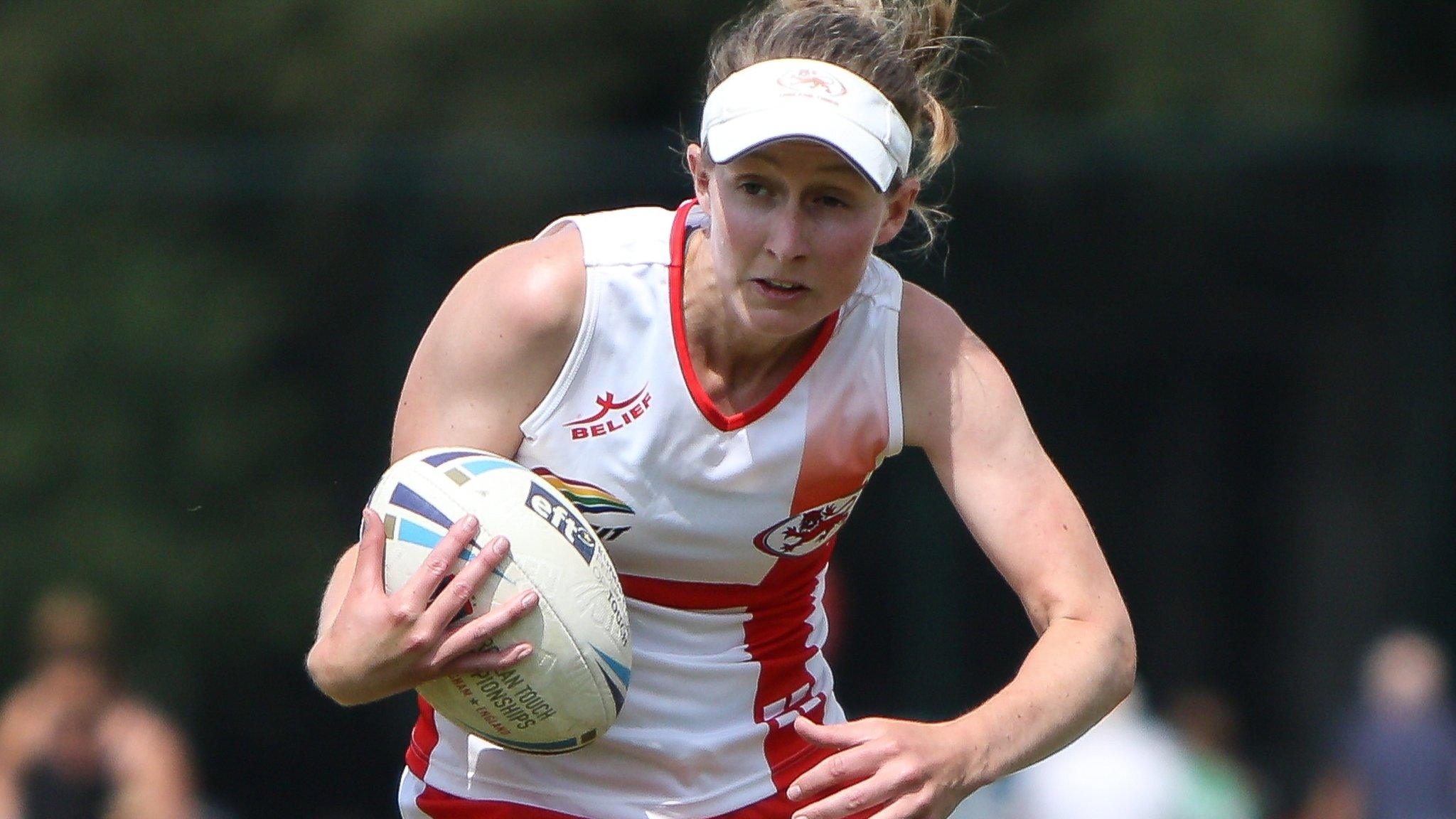
- Published27 February 2015

- Published27 September 2015
